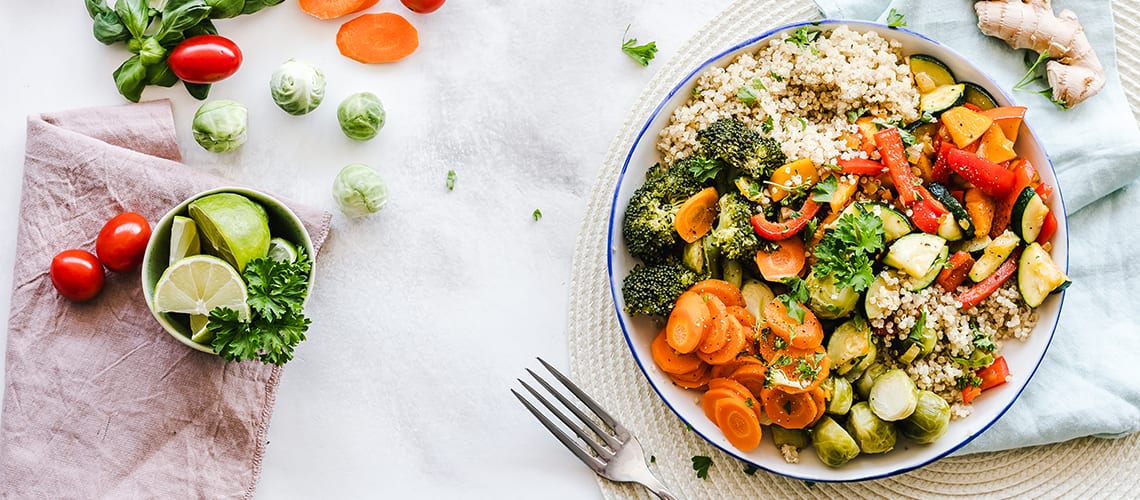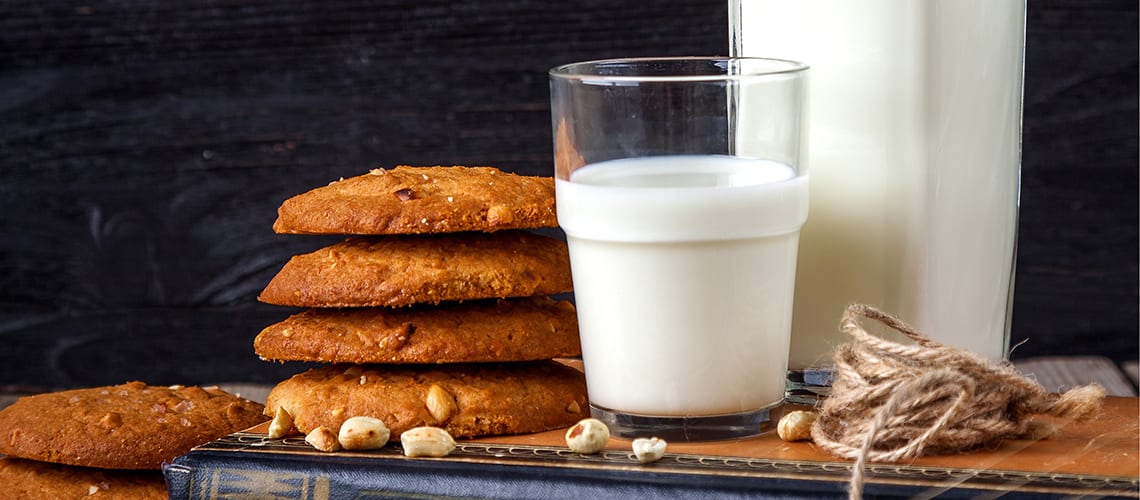Pregnancy diet and nutrition: all our tips
Pregnancy is a period of joy to be shared as a couple and a family, but it is also a time of profound upheaval on many levels, be they emotional, hormonal or physical, but one of those that is absolutely not to be neglected, even if it is sometimes forgotten, is food.

Nutrition is indeed an omnipresent and very important topic during your pregnancy as it can say a lot about the health of your unborn baby. The myth of pregnant women craving sweet, fatty or salty foods is real and the line between healthy meals and unhealthy snacks can quickly be crossed. It’s not just a matter of controlling your weight and BMI – although this is still important within reason – but also of carrying your baby and welcoming him as healthy as can be.
Contrary to what many women’s magazines say, no, there’s no special diet to follow during this period. It’s up to you, your tastes, and your personal eating habits. That being said, certain foods are to be favoured while others are to be avoided, not to mention alcohol and tobacco, which should be purely and simply eliminated during this period. However, if this is a real work on yourself, don’t hesitate to talk about it with your doctor or health personnel specialized in these areas.
In addition to these two toxic products, it is still sometimes difficult to resist the temptations of junk food during this period, and that’s why Little Guest has put together a little food guide for our readers waiting for a happy event, as well as ideas for recipes to try during your pregnancy, without moderation!
REFLEXES TO HAVE
In addition to the choice of food, a few reflexes are required to ensure that your pregnancy goes smoothly. Here are the most important ones.
Eat more but eat better
Food cravings are common during pregnancy, especially in the first trimester, and many of us would be prone to eating more or large amounts of food, especially fatty or sweet foods. These habits are to be avoided, even if it is sometimes necessary to know how to treat yourself (and fortunately!). In order to maintain a healthy diet despite this inevitable weight gain, which can sometimes be difficult to live with, eat more often, but without necessarily eating more, or eating worse. Favour balanced snacks between healthy and varied meals such as yoghurt, fruit or a cereal bar.
Foods to choose for a healthy snack:
- Fresh seasonal fruit
- Grain products such as bread (wholemeal bread is preferable) or a cereal bar.
- Light dairy products such as yoghurt, cottage cheese, etc.
Resist until the next meal
If you absolutely want to avoid snacking, adapt your meals accordingly. If you are eating for two, then you will eat more, but choose hearty dishes that will satisfy your hunger until dinner, for example. At mealtimes, choose starchy foods to avoid cravings until the next meal or snack. Rice, pasta, semolina, pulses and potatoes are welcome!
Stay hydrated at all times
This advice is valid in all circumstances, for all ages and all people, but it is also appropriate for pregnant women. Favour water suitable for infants and pregnant women, such as Evian, and try to drink about 1.5 litres of water per day. Of course, do not swallow two bottles in a row, drink regularly from the time you get up until you go to bed.
Attention to the cooking
Contrary to preconceived ideas, red meat and fish are allowed, but they must be well cooked! Beef tartars and sushi are therefore prohibited throughout your pregnancy.

FOODS TO AVOID
During your pregnancy, certain food that you may have enjoyed before are now banned or strongly discouraged. This is only for a while, however, and the effort is well worth it, but we thought it was important to remind you of this!
Alcohol
Alcohol is toxic to your baby; by passing directly into your bloodstream, it will also pass into your baby’s bloodstream. Studies show that this promotes early alcoholism or can harm your baby’s neurological development. Be careful, it is also important to avoid food containing alcohol, whatever it is! So, cheer up and tell yourself that you will be entitled to a well-deserved glass of champagne when you leave the maternity ward!
Caffeine
Contained in tea, coffee and lots of soda, it’s an exciter and can be harmful to your baby’s heart health. Try to limit her consumption as much as possible, or go for a green tea and, why not, decaffeinated coffees which, to be honest, taste exactly the same as the original.
Animal liver products
These products, such as foie gras, are rich in vitamin A, a vitamin that is particularly harmful to the foetus. However, a normal diet will protect you from this type of complication. So, there’s no question of having foie gras at family meals again, even if you love it. Even if it doesn’t taste exactly the same, why won’t you try its vegan and cruelty-free alternative: Faux Gras?
Soya and its derivatives
Despite its popularity with organic and healthy food chains, soy, in addition to having a fairly significant ecological impact, contains hormones that are harmful to the development of a healthy pregnancy. Favour other cereals, such as quinoa, which is delicious in salads in particular!
Foods enriched with phytosterols
Designed for people with too much cholesterol and present in certain dairy products (yoghurts, margarine, certain cheeses…), these foods are not recommended during pregnancy, as they could drastically reduce the level of « good » cholesterol necessary for baby’s development. If you already had a high cholesterol level before your pregnancy, ask your doctor for advice.
KEY FOODS TO CARRY A PREGNANCY TO TERM

Finally, certain foods will be essential for your baby’s healthy development! Learn how to tame them and test new recipes, and who knows, maybe you’ll discover new tastes and fetish foods?
Folates and vitamin B9
Folates and vitamin B9 play a key role in the neural development of the embryo, particularly in the closing of the neural tube. So, don’t hesitate to eat foods containing them, such as green vegetables (spinach, salads), melon, nuts, etc.
Calcium
Calcium is historically known to strengthen bones and teeth and this is true for your unborn baby too. Doctors recognize that during pregnancy it is good to consume about 1000 mg of calcium every day. To do so, choose once again various dairy products and mineral waters rich in calcium (Hépar, Courmayeur, Contrex…), but also nuts, such as almonds or hazelnuts, to slip into your handbag in case you get hungry.
Vitamin D
Vitamin D is sorely lacking in Northern Europe but is known to absorb calcium. Therefore, favour regular exposure to the sun with excellent SPF protection, fatty fish such as herring or salmon, and dairy products enriched with whole milk or vitamin D to fill up. Don’t forget to regularly check your calcium levels with your doctor.
Iron
Iron is essential in the creation of haemoglobin. Remember to eat cooked red meat twice a week to fill up, but also pulses such as lentils. Season your dishes with lemon to replenish vitamin C, which is known to help iron absorption.
Iodine
Iodine helps brain and memory development. It is found in various fish such as tuna, but also in eggs and dairy products.
WHICH FOODS TO FAVOUR, AND AT WHAT TIME?

Not all foods recommended during pregnancy are recommended at the same time. Find here our scheme of foods to be preferred according to the stage of your pregnancy.
From the beginning of pregnancy to the 3rd month
During the first trimester, strengthen baby’s immune system by focusing on animal proteins. They are important for the healthy development of muscles and bones. Red meat, fish and poultry are therefore popular, as are dairy products. Raw vegetables are also excellent side meals.
From the 4th month
From the second trimester onwards, fatigue is often felt. In order to be full of energy, therefore, favour cereals, starchy foods but also foods containing iron and slow sugars. Avoid fast sugars contained in junk food, soft drinks or sweets.
The 5th and 6th months
As your baby has grown, your diet will now have to follow certain requirements. Focus on calcium and vitamin D to help support bone and dental development. Also, a U.S. study has shown that additional calcium intake tends to reduce the number of postpartum depressions, and it’s important to take care of your digestive system: eat fibre and stay hydrated!
7th Month
Your baby is now bursting with energy and gains more weight than before. Favour vitamins but also good fats (such as olive oil) or omega 3 and omega 6 (contained in vegetable oils and fish) to give baby a well-functioning brain. Avoid slow carbohydrates, even if, as said before, it is important to indulge from time to time.
The 8th and 9th months
There you go, you’re ready to welcome your sweetheart! During the final stretch, always encourage the intake of vitamins, without neglecting your hydration. Minerals and vitamin D are always recommended, but avoid vitamin A, which in high doses can sometimes cause deformities. For this last round where heartburn is common, avoid foods rich in bad fats, acids, or irritants, as well as heavy meals. Prefer split meals.
AN IDEA OF A HEALTHY AND BALANCED MEAL DAY DURING YOUR PREGNANCY

If you have trouble visualizing your meals despite all our advice, don’t panic, here is a typical example, tested and approved by Little Guest! It is ideal for a first or early second trimester of pregnancy.
In the morning
A bowl of whole milk
Fried eggs
Decaffeinated coffee
An orange
A slice of wholemeal bread
Morning snack:
Almonds, a yogurt
At noon
Seasonal green salad with light vinaigrette
All-you-can-eat spinach with rice
Marinated fillet of beef
Yoghurt
A fresh smoothie
Afternoon snack:
Almonds or cereal bar, a bar of dark chocolate rich in iron, a glass of fresh milk
For dinner
A soup of seasonal vegetables
A well-cooked tuna or salmon fillet, seasoned with sorrel or lemon and served with potatoes or pasta
Cheese
A fruit of your choice
Of course, this article is not a substitute for the advice of your doctor or dietician who are professionals. Don’t forget to ask them for their expertise before any dietary upheaval! Take advantage of this time to rest, spend quality time with your family, and above all enjoy eating healthy and balanced foods, whether you are at home or on vacation!
OUR SELECTION OF HOTELS FOR EXCEPTIONAL MOMENTS OF RELAXATION DURING YOUR PREGNANCY

Rest, relaxation and good nutrition are essential during your pregnancy. We have therefore selected our best hotels including a chef at home so that your eating habits are not altered and are perfectly adapted to your desires, an indoor swimming pool (swimming during your pregnancy is highly recommended), or a health centre, for relaxation and well-being.
- Villas Terre Blanche: located in the South of France, the Villas Terre Blanche have the particularity of offering light meals in the 1* Michelin Guide restaurant, but also tailor-made menus!
- Grand Hotel Thalasso & Spa: located in the heart of the French Basque Country, discover a historic establishment dedicated to well-being. The Bistrot Badiat and the ocean restaurant also offer detox menus and dietary suggestions.
Enjoy your meal, and above all, lots of fun with baby!
Sources: naitreetgrandir.com;

Rachel, 24 years old, passionate about history and travel, Occitan expatriate in Flanders
Our best-sellers hotels
Book with us!
Best price guarantee
7/7 concierge service
Guaranteed places at the kids-club
Samsonite travel gifts
Welcome and VIP benefits at the hotel
(4,9)
Let's keep in touch
Exceptional advantages, exclusive news, personalised travel tips: subscribe to our newsletter and make sure not to miss anything.
You will also like







